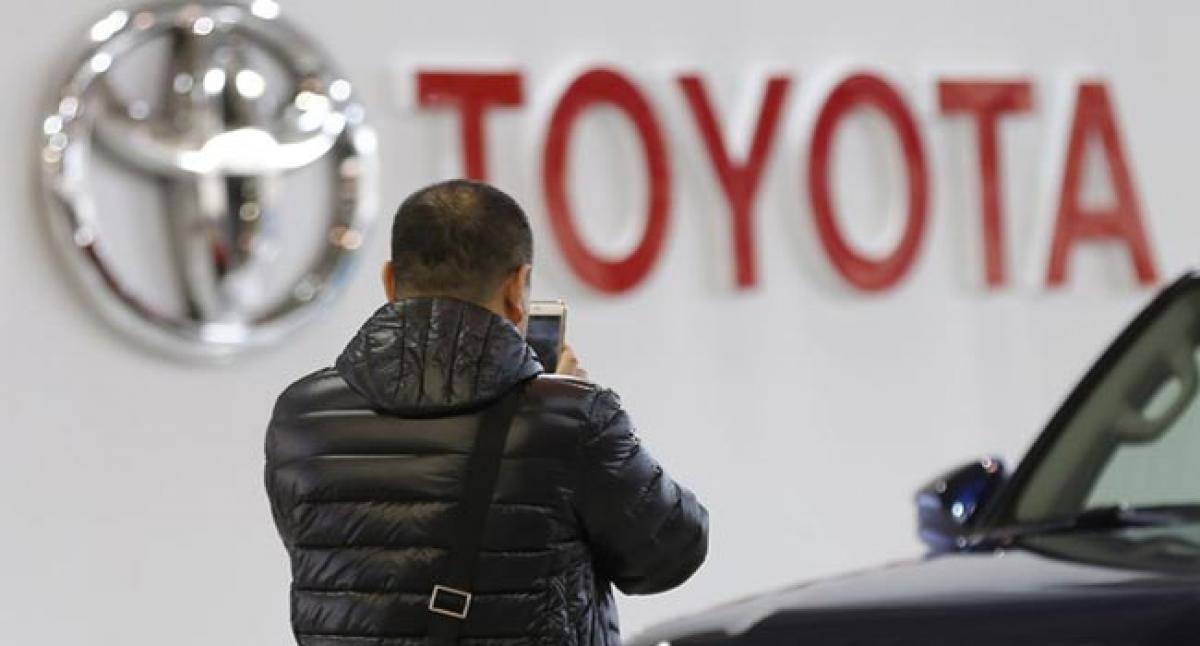Live
- 22 Balaji MBA College students secure jobs
- Panel to resolve inter-State disputes
- Matric exam from Feb 21 to March 6
- Keep your skin glowing this season
- Joshi flags off 10 battery-operated vehicles in Puri
- Adah Sharma shares her father’s ‘worst’ humour on morbid situations
- Tamannaah flaunts hour-glass figure in ‘fit check’ pictures
- CM launches projects worth Rs 1.5K cr for tribal development
- Nidec India’s new plant in Sri City goes on stream
- AP signs 8 MoUs with IIT Madras on key sectors
Just In

Global car major Toyota has moved the National Green Tribunal (NGT) by claiming that banning diesel vehicles across the country was like a ‘corporate death penalty’ as it impacts the existence of the company. The petition, likely to be heard by a bench headed by NGT Chairperson Justice Swatanter Kumar on August 2, has sought impleadment in a case filed by lawyer Vardhaman Kaushik on air pollu
Global car major Toyota has moved the National Green Tribunal (NGT) by claiming that banning diesel vehicles across the country was like a ‘corporate death penalty’ as it impacts the existence of the company.
The petition, likely to be heard by a bench headed by NGT Chairperson Justice Swatanter Kumar on August 2, has sought impleadment in a case filed by lawyer Vardhaman Kaushik on air pollution in Delhi.
The Japanese carmaker in its plea appealed that the blanket ban is ‘unfair and unjust’ as the company is complying with all the laws of the country. Any restriction would severely impact not only automobile sales but the livelihood of thousands of people engaged in the sector.
“The applicant company is being penalised for no fault or violation on its part thereby making the order banning registration of diesel cars as unjust and unfair on the company. The imposition of ban on registration of diesel vehicles is in the nature of a corporate death penalty as it impacts the very existence of the company,” said Toyota.
“A ban order is an extremely harsh/excessive punishment and ought to be imposed in circumstances where a party commits a serious violation and not when there is no violation,” it added.
The plea stated that there is no link between engine capacity and emission levels. As per Motor Vehicles Act, “the engine capacity of a motor vehicle is not even a factor that is taken into consideration by the government for prescribing the applicable mass emission standards”.
As for its latest offering, the Innova Crysta, the company believes that it is a public car and is seldom employed for executive usage. The car’s higher engine capacity is also justified with the fact that it carries more people, reducing carbon footprint.
Toyota also used the IIT Kanpur study to point out that diesel vehicles hardly contribute to the menace of air pollution when compared to the industry wastage. Toyota further said it has invested approximately Rs 1200 crores in a high performance, high technology diesel engine project in Karnataka which will also generate employment to over 500 people.
In December last year, the NGT had banned the registration of all new diesel vehicles with engine capacity greater than 2000cc in the Delhi-NCR, one of the leading car markets in the country. The ban, after being supported by the Supreme Court, was later adopted in other parts of the country as well.
Credits: cardekho.com

© 2024 Hyderabad Media House Limited/The Hans India. All rights reserved. Powered by hocalwire.com







